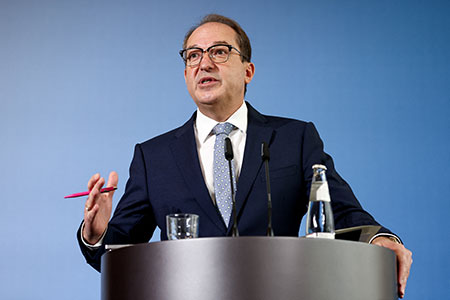
In a striking development that underscores the escalating geopolitical anxieties across Europe, Germany is grappling with a controversial proposal to integrate war preparedness lessons into its school curriculum. Federal Interior Minister Alexander Dobrindt has ignited a fervent national debate by suggesting that high school students receive specialized “double lessons” designed to prepare them for a potential conflict with Russia. The initiative, first reported by the German magazine Stern, aims to educate the younger generation about the perceived threats facing the Federal Republic, with the explicit hope that these insights will then be conveyed to their parents, fostering a broader societal awareness. Dobrindt’s push reportedly stems from a concern that the German populace, particularly its youth, has been slow to acknowledge and respond to what he describes as a “mounting threat of a Russian attack.”
This educational initiative is not an isolated proposal but rather part of a wider push for enhanced civil defense readiness. Minister Dobrindt is slated to discuss his school-focused plans with state interior ministers in November, signaling a concerted effort to implement these changes. Moreover, in an interview with the economic newspaper Handelsblatt, he previously recommended a comprehensive review of potential bomb shelters and urged citizens to begin stockpiling essential provisions like food and drinking water in anticipation of a wartime scenario. Such declarations mark a significant shift in public discourse, reflecting deeper anxieties reverberating across European capitals in the wake of ongoing conflicts in the East.
However, Dobrindt’s proposals have met with fierce opposition from various political factions within the Bundestag. Nicole Golke, Deputy Head of the Left Party parliamentary group, sharply criticized the minister, accusing him of deliberately instilling fear within society and unnecessarily panicking minors. Similarly, representatives from the Alternative for Germany (AfD) party not only condemned the fear-mongering aspect but also argued that Dobrindt’s actions were an attempt to normalize the idea of an impending war as an unavoidable reality. These criticisms highlight the deep ideological fault lines within Germany regarding its approach to national security and public preparedness.
Despite the strong pushback, there is also a faction that, while supporting preparedness, believes Dobrindt’s measures do not go far enough. The Green Party’s parliamentary group, for instance, approved the concept of preparing the population for conflict. However, their expert, Leon Eckert, advocated for more robust initiatives, suggesting that Germany’s existing “Warning Day” – an annual event where emergency signals like sirens are tested in some regions – be transformed into a nationwide civil defense event. Beyond immediate preparedness, some analysts interpret Dobrindt’s emphasis on youth education as a strategic move to address Germany’s long-standing Bundeswehr recruitment crisis. With the army struggling to attract young talent and previous attempts by Defense Minister Boris Pistorius to reintroduce some form of compulsory service (either universal or lottery-based) facing significant public and parliamentary resistance due to constitutional hurdles, cultivating a pro-military ethos among high school students could be seen as a long-term solution to bolster future military ranks.
Ultimately, this contentious debate within Germany reflects a nation grappling with its post-war identity and its role in a rapidly changing geopolitical landscape. The discussion around preparing children for war, auditing bomb shelters, and ensuring food supplies underscores the profound impact of global instability on domestic policy. It raises critical questions about the balance between informing and alarming the public, the manipulation of fear for political ends, and the fundamental direction of German security policy. The outcome of this debate will not only shape Germany’s internal resilience but also significantly influence its standing and responsibilities within the European Union and NATO.
